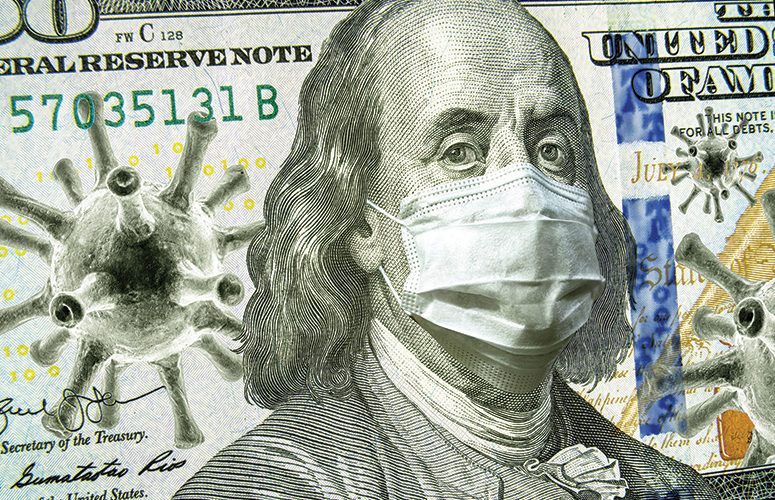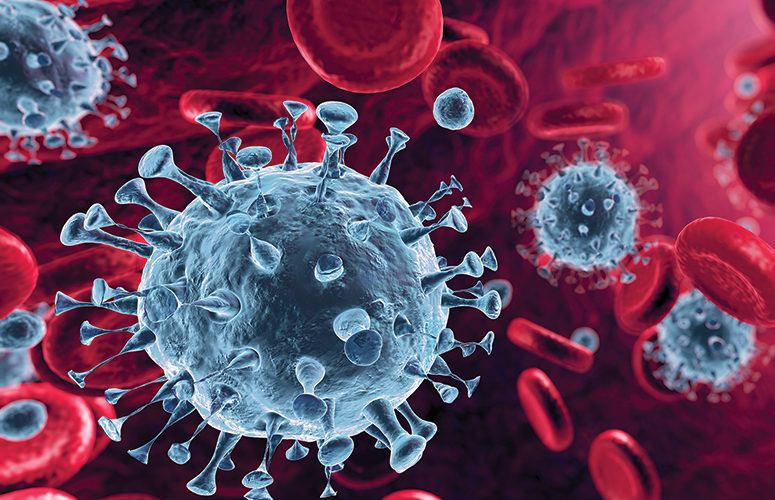
Banks Push the Envelope in COVID-19 Climate
Assisting businesses and communities, financial institutions uphold their philanthropic missions in pandemic and pending post-pandemic world.
By Anthony Birritteri, Editor-in-Chief On Jul 2, 2020When it comes to philanthropic initiatives during the COVID-19 pandemic, New Jersey’s financial institutions are pushing the envelope in terms of care to the local communities and businesses they serve.
Grants and donations run the gamut in terms of the entities assisted, ranging from food banks and economic development organizations, to hospitals, first responders, shelters and more.
On the commercial assistance side of the ledger, New Jersey banks have (at press-time), helped businesses by making a total of 124,489 Paycheck Protection Program (PPP) loans since the federal program was introduced on March 27 through the CARES Act, according to an Focus NJ report. This equates to a total of $17.6 billion in funding. Administered through the Small Business Administration, the PPP – through Phase I and II funding – has made $659 billion in low interested loans available to US businesses.
Assistance in Dire Times
All of the resources mentioned are needed by businesses, communities and families in unprecedented times, even as Governor Murphy slowly reopens the state for business.
“It is difficult to grasp the enormity of the pandemic,” notes Thomas J. Shara, president and CEO of Lakeland Bank and chairman of the New Jersey Bankers Association. “Economic downturns generally impact specific asset classes and businesses. This downturn has touched virtually every business customer, including their employees and their families. No one has been immune.”
To help ease the pain of the communities it serves, Lakeland has donated $100,000 to various food banks and pantries in Bergen, Sussex, Morris and Passaic counties. It also helped the New Jersey Community Development Corporation by purchasing 40 laptop computers for Paterson students so they could participate in remote learning. “That is one of the things of which I am most proud,” Shara says.
Other initiatives included donations to St. Paul’s Community Development Center for a men’s shelter, and assistance to Oasis – A Haven for Women and Children (both organizations are based in Paterson). The bank also donated money to The Women’s Rights Information Center in Englewood. In total, Lakeland has given more than $175,000 in emergency COVID grants and donations.
At Peapack Gladstone Bank, Doug Kennedy, president and CEO, says the pandemic is an event “none of us have experienced in our lifetime … and it has probably hit the metropolitan area, including all of New Jersey, the hardest. All of this, with social distancing, had essentially shut down the economy. And the impact has been disproportionate,” he says, explaining the more fortunate can keep their jobs and work from home via their computers, but people with lower skilled jobs and those living in densely populated cities are adversely impacted.
“These are the ones who are most vulnerable and exposed,” Kennedy says, and Peapack Gladstone Bank has dedicated staff members in place who are constantly calling and staying in contact with some 200 nonprofit organizations to make sure these people “do not fall through the cracks.”
Some organizations the financial institution has assisted during the pandemic include: the Union County Economic Development Corporation, with a $10,000 donation: $5,000 to the NJ Pandemic Relief Fund; and food and supplies collected from bank employees, which were donated to St. Hubert’s Animal Welfare Center and the Somerset Regional Animal Shelter. Additionally, all Peapack Gladstone Bank employees have each been given $500 to help any client in need.
On average, Kennedy says the bank’s charitable giving is between $350,000 to $400,000 each year. This year, because of the pandemic, bank giving will be in the $400,000 to $500,000 range.
OceanFirst Bank has been busy assisting its communities in New Jersey, and metro New York and Philadelphia (a 53-branch network), via its OceanFirst Foundation.
According to Joseph Lebel, executive vice president and COO, the foundation has awarded more than $450,000 in special grants to help its neighbors and nonprofit partners since the pandemic began. “This includes $100,000 awarded to food banks; and $150,000 to behavioral health organizations, professional protection equipment (PPE) providers, shelters and senior service organizations,” he says.
For the Girl Scouts of the Jersey Shore, who were stuck with 100,000 boxes of cookies they could not sell door-to-door, the bank purchased 10,000 boxes, which it gave to the FulFill NJ Food Bank. In turn, Fulfill is including the cookies in crisis relief packages to families. The bank has since challenged other local businesses to buy the remaining boxes to help the Girl Scouts.
Additionally, the OceanFirst Foundation has recently partnered with the Grunin Foundation and Townsquare Media in recognizing 40 nonprofit organizations for their “Acts of Kindness” in going above and beyond in helping and supporting neighbors during the COVID-19 pandemic.
Meanwhile, Investors Bank, through its own foundation, has released more than $1.13 million in financial grants to nonprofit organizations in New Jersey and New York. More than 170 local and regional organizations have received grants, including food pantries, feeding programs, rescue squads, EMT and EMS teams, hospitals, and economic development corporations that assist small businesses, including $50,000 to the UCEDC.
Investors Bank Chairman and CEO Kevin Cummings says, “We believe in forming alliances that bring our company and nonprofit organizations together, and we are seeking to identify how we may assist the organizations that are providing essential services to our neighbors.”
PPP Loans
Of course, small businesses that dot the urban and suburban commercial landscapes of the Garden State have been in tremendous need of funding to keep employees on the payroll, pay rent and, most importantly, remain in business during this ongoing crisis. This is where the PPP program has become a lifeline to many.
“I have had many businesses tell me the PPP loan made a difference between them staying open or being forced to take other alternatives,” OceanFirst’s Lebel says.
Peapack Gladstone Bank’s Kennedy adds, “So many [business owners] broke down in tears when we told them we were helping them [via the PPP]. It’s been a profound human experience.”
Demand was so great that a third of the bank’s employees migrated from other jobs to help make various SBA-related loans, and much of this happened overnight, Kennedy explains.
As for the numbers, Peapack Gladstone Bank has, at press time, assisted 2,400 companies with PPP loans, with the average loan being $250,000. This is $610 million in total with 52,000 jobs saved, Kennedy says.
OceanFirst has approved some 3,000 loans totaling $503 million. “What I am proud of,” Lebel says, “is that 2,746 of those loans went to small businesses with less than 50 employees, and of that, 642 had less than 10 employees. The rest of the money went to various nonprofit organizations.”
Lakeland Bank has closed some 2,000 PPP applications for a total of $325 million, positively impacting 19,000 jobs.
As chairman of the New Jersey Bankers Association, Lakeland’s Shara says that bankers across New Jersey have approved more than 125,000 PPP loans for a total of $17.6 billion.
Conclusion
Shara is glad to see the state slowly reopening. That has been a point of uncertainty and frustration for many of Lakeland’s business clients. Asked what small business needs will be going forward as they open, he says it will mostly revolve around working capital.
Banks have also been offering 90-day loan deferrals to businesses and homeowners during the pandemic, and Shara thinks another 90-day deferral period may be needed.
Meanwhile, OceanFirst’s Lebel said banks will be making sure to collect the vast amount of data needed to have the PPP loans forgiven if businesses have used the funds under SBA guidelines. “That’s our goal in the third quarter,” he says.
“It is our obligation to help everyone work their way back and get through this,” Shara says. “Nobody did anything wrong. In the previous recession there was overleveraging from borrowers, while banks were blamed for just about everything. This time, this is not the case. Banks came into this with lots of capital and liquidity, and our customers are going to need banks to show them the way and be a source of strength.”
To access more business news, visit NJB News Now.
Related Articles:





